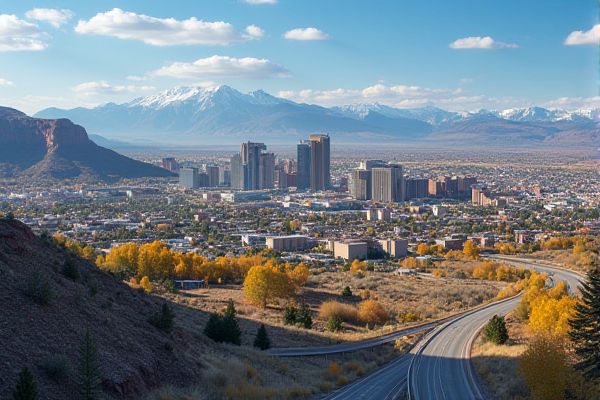
Local laws and regulations in Utah: Alcohol laws and regulations. Smoking restrictions. Recreational marijuana legality. Building permits and zoning. Vehicle registration requirements. Firearm possession laws. Noise ordinances. Wildlife protection regulations. Short-term rental laws. Business licensing requirements.
Alcohol laws and regulations
In Utah, alcohol laws include restrictions such as ordering alcohol in restaurants only between 11:30 a.m. and 1 p.m. with food, bars serving draft beer up to 5% ABV, and the prohibition of liquor and wine sales in grocery stores, which must be purchased from state liquor stores. The minimum drinking age is 21, and there are strict regulations on serving and purchasing alcohol. For more detailed information, you can visit American Course Academy to ensure you are fully informed about these specific regulations.
Smoking restrictions
The Utah Indoor Clean Air Act strictly prohibits smoking and vaping in all enclosed indoor areas accessible to the public, which includes government and private businesses, as well as child care facilities. Additionally, the law extends to areas within 25 feet of entrances, exits, or air intakes. Civil penalties for violations can range from $100 to $500. It is the responsibility of business owners to enforce the law, including displaying the proper "No Smoking" signage. For more detailed information, you can visit the Utah Tobacco Laws website.
Recreational marijuana legality
Recreational marijuana is illegal in Utah; possessing it can result in a class A misdemeanor with up to 364 days in jail and a fine of up to $2,500, or even a second-degree felony for large quantities. For more detailed information and legal guidance, you can visit the Brown Bradshaw & Moffat website.
Building permits and zoning
In Utah, building permits and zoning regulations are governed by local governments, requiring property owners to ensure compliance with specific zoning categories, obtain necessary permits for modifications or developments, and follow procedures for variance and rezoning requests to avoid fines and legal issues. For those seeking to delve deeper into the complexities of these laws, the Comprehensive Guide offers invaluable insights into the nuances of Utah's zoning laws, assisting property owners in navigating this intricate landscape effectively.
Vehicle registration requirements
If you're planning to register a vehicle in Utah, there are several documents you'll need to have on hand. These include a completed Vehicle Application for Utah Title (Form TC-656), current out-of-state registration, Bill of Sale, proof of passing safety and emissions tests if applicable, a Utah driver's license, proof of ownership, Utah car insurance, and the payment for registration fees. According to the Ultimate Guide to Registering Your Vehicle in Utah, new residents have 60 days to transfer titles and registrations. It’s important to note that vehicles may require a VIN inspection and safety/emissions tests, depending on county requirements.
Firearm possession laws
In Utah, individuals under 18 are generally prohibited from possessing firearms, although exceptions exist for minors who have parental or guardian permission, and for engagements in specific activities such as hunting, target shooting, and firearms safety courses. When it comes to individuals aged 18 and older, they are allowed to possess firearms; however, those with certain convictions or restrictions are prohibited from doing so. This approach ensures that firearms are accessible under regulated conditions, balancing individual rights with public safety concerns.
Noise ordinances
In Provo, Utah, noise ordinances specify decibel limits varying by district and time of day, with residential areas limited to 85 dBA during the day and 55 dBA at night, and mandatory sound breaks if levels exceed 105 dBA. Additional regulations address specific noise sources like animals, public entertainment, and impulse noises. For more detailed information, please refer to the official Provo Municipal Code.
Wildlife protection regulations
Utah's wildlife protection regulations are governed by administrative rules passed by the Utah Wildlife Board, which manage hunting, fishing, and wildlife management. These rules ensure that all wildlife is property of the state, with exceptions for private ownership, and regulate activities such as private wildlife farms and the release of protected wildlife.
Short-term rental laws
In Utah, operating a short-term rental requires obtaining a registered license, complying with local zoning regulations, and adhering to specific state and local laws, including the payment of a Short-Term Rental (STR) Permit Fee, collection of state sales tax, and transient room taxes. Hosts must also ensure their rental advertisements are lawful and may need to notify neighbors, with varying regulations across different municipalities and counties. For further details on navigating these requirements, visit the Airbnb Short-Term Rental Laws and Regulations in Utah.
Business licensing requirements
In Utah, all businesses must obtain a local business license from the city or county where they operate, with each locality having its own licensing requirements, forms, and procedures. Additionally, businesses may need to comply with federal and state regulations, such as sales tax permits and occupational licenses, depending on their activities. For detailed guidance and insights, you can visit the Utah Business License Info page to ensure that all necessary requirements are met according to your business's specific location and operational needs.
